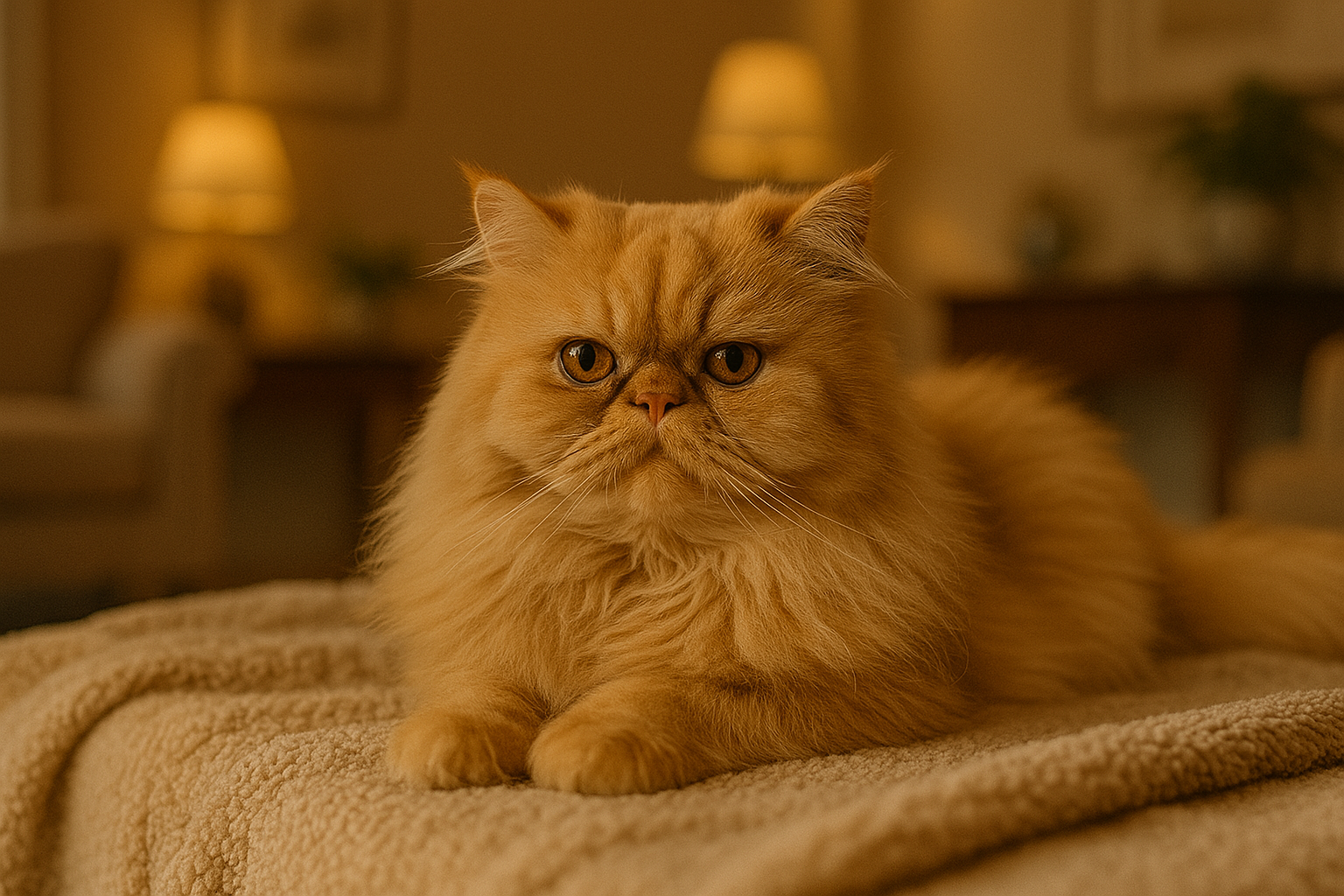Persian cats are among the most recognized and adored cat breeds in the world. With their luxurious long coats, sweet round faces, and calm personalities, they’ve earned a reputation as feline royalty. But with great beauty comes great responsibility — Persian cats require consistent grooming and special care to stay healthy and happy.
In this guide, you’ll learn everything you need to know to care for a Persian cat, from daily grooming routines to ideal living environments and health tips.
The Persian Cat Personality
Persians are known for being:
- Affectionate and gentle
- Quiet and laid-back
- Loyal to their humans
- Content with indoor living
- Calm and less active than most cats
They’re perfect for calm households, seniors, and people who enjoy quiet companionship. They’re not jumpers or climbers like more active breeds — instead, they prefer lounging in comfort and being adored.
The Iconic Persian Coat: Why Grooming Is Essential
The Persian’s most striking feature is also its most high-maintenance: the coat. Long, dense, and silky, it needs daily attention.
Daily Grooming Routine:
- Brush every day using a wide-toothed comb and slicker brush
- Remove tangles before they become mats
- Check underarms, behind ears, and chest area (common mat zones)
- Use detangling spray for stubborn knots
- Be gentle to avoid pulling on the skin
Bathing:
- Bathe every 4–6 weeks (more often if coat becomes greasy or dirty)
- Use cat-specific shampoo and conditioner
- Dry thoroughly with a towel and low-heat dryer
- Brush after bathing to prevent new tangles
Persians raised with grooming from a young age usually enjoy (or at least tolerate) the routine.
Eye Cleaning and Facial Care
Persians are brachycephalic cats, meaning they have a flat face and short nose. This makes their eyes prone to tearing and staining.
Tips for eye and face care:
- Wipe eyes daily with a damp cotton pad or pet-safe wipe
- Use a separate pad for each eye to avoid infection
- Trim facial fur to prevent irritation
- Keep food and water bowls clean (face may drag through)
Regular face cleaning not only keeps your cat looking neat but also prevents eye infections.
Feeding and Nutrition
Persian cats benefit from a balanced diet that supports:
- Skin and coat health
- Digestive sensitivity
- Hairball control
Feeding tips:
- Choose high-quality, protein-rich food (wet or dry)
- Select kibble designed for flat-faced breeds (easier to pick up)
- Offer small, frequent meals to avoid stomach upset
- Keep fresh water available at all times
Some Persian-specific cat foods are formulated to reduce shedding and support the immune system — ask your vet for recommendations.
Creating the Ideal Home Environment
Persians are homebodies and thrive in peaceful, clean environments. Here’s how to make your home Persian-friendly:
- Provide soft beds or blankets in quiet corners
- Place scratching posts near favorite nap areas
- Use low-entry litter boxes for easier access
- Keep the home cool — they overheat easily under long fur
- Offer window views, but keep them safe indoors
Unlike more adventurous breeds, Persians are happy to stay inside and watch the world go by.
Health Concerns to Watch For
While generally loving and gentle, Persians are prone to some health issues due to their unique anatomy and genetics:
- Polycystic kidney disease (PKD) – common in Persians
- Respiratory issues due to flat faces
- Dental disease
- Eye infections or staining
- Hypertrophic cardiomyopathy (HCM) – a heart condition
To keep your Persian healthy:
- Schedule regular vet checkups
- Keep vaccinations and parasite control up to date
- Discuss genetic testing for PKD with your vet or breeder
- Maintain ideal weight with portion-controlled feeding
Play and Enrichment
Although not high-energy, Persian cats still need mental stimulation:
- Use feather wands or teaser toys
- Offer puzzle feeders to challenge their minds
- Provide soft toys they can bat around from their favorite perch
- Rotate toys weekly to prevent boredom
They may not leap and chase like other breeds, but Persians enjoy calm, interactive play with their humans.
Persian Cats and Children or Other Pets
Persians are typically gentle and patient, making them suitable for homes with older children or calm dogs. However:
- Young children should be taught to handle them gently
- Introduce new pets slowly and in a controlled environment
- Provide quiet spaces where the cat can retreat
They often form close bonds with their family but may be shy with strangers.
Final Thoughts: Is a Persian Cat Right for You?
Choose a Persian cat if you:
- Want a calm, loving, and visually stunning feline
- Are committed to daily grooming
- Prefer indoor cats that enjoy a slow-paced lifestyle
- Have a peaceful home environment
Persian cats reward their owners with years of companionship, elegance, and quiet affection — as long as you’re ready to care for that royal coat and give them the attention they deserve.

